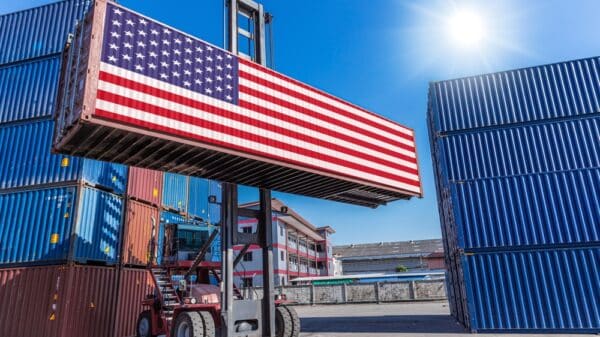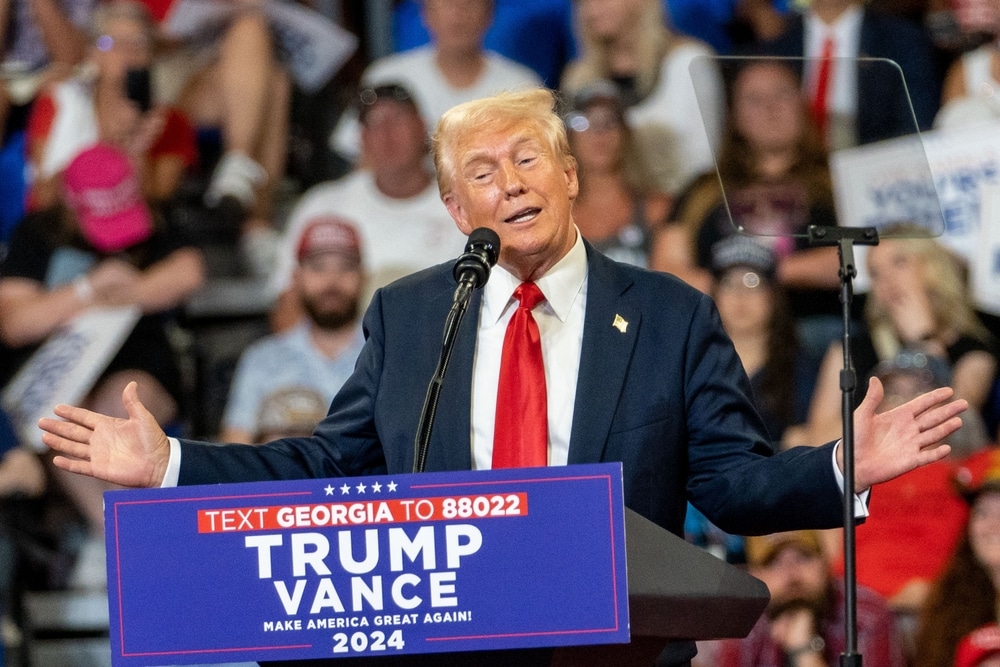Senior officials from the Trump administration recently tried to downplay the impact of a pivotal U.S. trade court ruling that halted many of President Donald Trump’s tariffs. They expressed confidence that the decision would likely be overturned on appeal, reassuring everyone that there are alternative legal paths to explore in the meantime.
This moment came after the U.S. Court of International Trade ruled that Trump overstepped his authority by imposing tariffs on a broad range of countries, leading to an immediate reaction in the financial markets. These markets, which have fluctuated wildly based on the developments of Trump’s trade war, responded with what can only be described as cautious optimism following the ruling. However, analysts warn that uncertainty still looms large over the future of these tariffs. A Reuters analysis estimates that companies have incurred more than $34 billion in losses due to these tariffs, highlighting just how much of a strain this has put on businesses.
Adding to the legal turmoil, another U.S. court issued a preliminary ruling against the tariffs on the same day, notably blocking their implementation for educational toy maker Learning Resources. While U.S. District Court Judge Rudy Contreras’s ruling didn’t completely eliminate the tariffs, it did halt their application on the toy company and allowed its challenge to continue in court.
In the face of these setbacks, the administration promptly appealed to keep the tariffs in place, emphasizing that they are central to Trump’s strategy in negotiating with trade partners, including long-standing allies like the European Union. White House economic adviser Kevin Hassett articulated that he believes the ruling will ultimately be reversed and reassured that it would not hinder upcoming trade negotiations.
Despite the legal chaos, it appears business as usual for some trading talks. A Japanese trade negotiator is scheduled to meet with U.S. Treasury Secretary Scott Bessent for another round of discussions, and India is still set to send its trade delegation next week—indicating that the ruling has not significantly disrupted trade dialogue.
Proponents of high tariffs within the administration remain optimistic as well. White House trade adviser Peter Navarro has stated that there are other legal mechanisms the administration could use to implement import taxes if the court’s decision stands.
Trump previously invoked the International Emergency Economic Powers Act (IEEPA) to impose these sweeping tariffs, a law meant to address economic threats during national emergencies. The court’s ruling found that this law does not bestow on Trump the unilateral power to impose such extensive tariffs. However, tariffs tied to national security, such as those on steel, aluminum, and automobiles, remain untouched by this ruling.
Reactions from trading partners have been measured. Canadian Prime Minister Mark Carney welcomed the ruling, suggesting it resonated with Canada’s stance that Trump’s tariffs were illegitimate. Other nations, like the UK, described the ruling as a U.S. domestic issue and pointed out that this was just the initial phase of legal proceedings.
Many analysts remain cautious about the future of tariffs. While some believe this ruling could temporarily halt Trump’s ambitious tariff agenda, others anticipate that the administration will lean on different legal arguments to maintain high tariffs moving forward.
Business and industry groups have voiced their frustration as uncertainty continues to cloud the trade landscape. Jonathan Gold, the National Retail Federation’s vice president for supply chains, expressed exasperation over the ongoing struggle to achieve a clear and consistent trade policy.
Market reactions have varied globally. Stock markets in Asia initially surged after the ruling, yet reactions in Europe were more muted, with many indices remaining steady. In the U.S., stock gains were modest, particularly within major indexes, highlighting the cautious sentiment among investors. The dollar also experienced a slight decline against other major currencies.
After Trump’s major tariff announcements earlier this year, he paused most import duties for 90 days, apparently to negotiate bilateral deals with various countries. However, aside from a tentative agreement with the UK, other countries have been slow to engage, potentially due to concerns surrounding the legal status of the tariffs.
Looking ahead, some suggest that if the court’s appeal does not succeed in the coming days, there could be gains in preparation time for any potential trade agreements—and a limitation on how expansive the tariffs can be.
Trump’s trade war has significantly impacted a wide array of industries, from luxury goods to household appliances. Major players like Diageo and car manufacturers like General Motors and Ford have been forced to abandon previous year-end forecasts due to the uncertain environment. Companies such as Honda, Campari, and pharmaceutical giants Roche and Novartis have stated they are considering relocating operations or enhancing their U.S. presence to mitigate the ongoing tariff effects.
As this chapter of the trade saga unfolds, the ripple effects of these tariffs continue to be felt across a wide spectrum of sectors, leaving many to ponder what the next steps will be in a situation that feels increasingly unpredictable.
Image Source: Phil Mistry / Shutterstock























